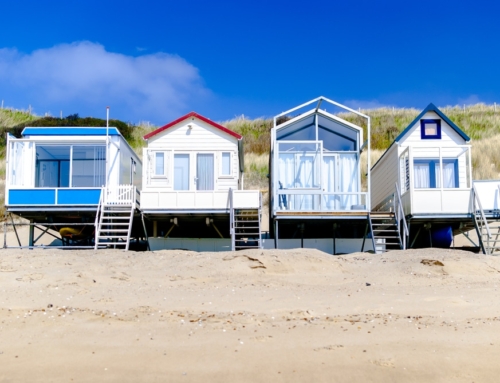Sell and Rent Back: Is this a good idea for seniors?
Q: I have owned a condominium in Sarasota, Florida since 1978 and it’s been my permanent residence since 2004. The character of it has changed and my costs have gone up. However, at 90, I don’t wish to move. I’ve been thinking of selling it to a buyer who would be willing to rent it to me until I die or decide to leave. What are your thoughts?
Sell and Rent Back: Location is important
A: At the moment, Florida is one of the hottest states for real estate. According to the Florida Realtors Association, at the end of April 2023, year-to-date condo/townhouse sales were nearly 35,000, which was down 29.4% from a year earlier. As a point of comparison, existing condo and co-op sales nationally fell 29.5% year-over-year, according to the National Association of Realtors.
The Florida Realtors Association said the median sales price of a condo/townhouse in Florida was $320,000 year-to-date, which was up 6.7% from the previous year. According to Zillow, the average sales price among all homes in Florida on the last day of May, 2023, was $385,187, up 5.4% from a year ago, and goes under contract in 24 days. Just over 13% of homes sell for more than list price.
Sarasota, in particular, is a hot area for buyers. Condo/townhouse sellers in the North Port-Sarasota- Bradenton metropolitan statistical area (MSA) are receiving a median sales price of $385,290 for their properties, up 7.3% from a year ago, according to the Florida Realtors Association. And, there would be more sales if only there were more homes for sale. There is no shortage of buyers, especially in the wake of Hurricane Ian, but the number of homes for sale is very low.
In a very hot market, sellers control the deal
All of which is to say, if you want to create some special conditions around your property, there will likely be someone willing to accommodate those in order to buy your home. So, let’s talk about how this might actually work.
In an ideal world, your best alternative would be to sell the property and retain a life estate. The life estate would allow you to remain in possession of the home the rest of your life. You would become the life tenant of the property, and would continue paying for the real estate property taxes and maintenance of the property. The buyer would become the beneficiary, and would receive the property after you die. Unfortunately, we don’t see why a buyer would want to buy a home and then let you live in it for the rest of your life.
How to sell and rent back the property
A more likely scenario is to arrange to sell the home and rent it back from the new owner. However, in this situation, the new owner would want you to pay rent and that rent would be large enough to cover the new owner’s cost for the real estate taxes, insurance, homeowner association expenses and the buyer’s loan.
As the buyer’s monthly costs go up, we’d expect that your rent would go up as well. So, you could expect your monthly expenses to go up over time as well. On the other hand, once you sell the home, you’ll have the cash from the sale of the property in hand, which you might need or want or could invest.
Where does this leave you? If you like where you are living and can afford to stay, you might want to do just that. On the other hand, if the expenses of your home are outpacing your income and want to move, or you’re truly unhappy with how your neighborhood has changed over the decades, you might be better off selling the home and using the money to pay for a new place to live.
If you can’t rent back, consider a retirement community
Moving is daunting at any age. Moving when you’re 90 is in an entirely different class, even if you have people (children, friends, paid professionals) willing to help. So, we get it. But, sometimes, moving is truly in your best interests.
In Florida, you might consider one of the many retirement communities that offer independent living, assisted living and other care that you might need as you move further into your 90s. In these settings, you won’t own the new home, but would rent from the facility manager. Once you are in the facility, you benefit from the services they offer including meals, common amenities, social events and the ability to obtain more medical and physical assistance as you need it.
We have family members and friends who are in their 80s and 90s. They’ve have chosen different ways to spend their remaining years. Some moved to independent or assistant living communities and love it. Others who have chosen to stay in their homes with 24/7 care.
Consider your choices carefully before listing the property
Your choices are clear: You can stay where you are, and try to find a buyer who will pay you now but let you keep living in your property as a tenant; you can sell and find a different home to buy or rent; or, you can move into some sort of independent or assisted living arrangement.
In the end, the decision is yours. We think selling and either renting from the buyer or moving to a community where you feel welcome and have the ability to get whatever care or socialization you need, are good options.
Think it over. Talk with those trusted family members or friends. Carefully consider your finances, any relevant medical conditions and the kind of social network you have today or could have in your new home. Then, hire the help you need to get you where you want to go.
Good luck.







Leave A Comment